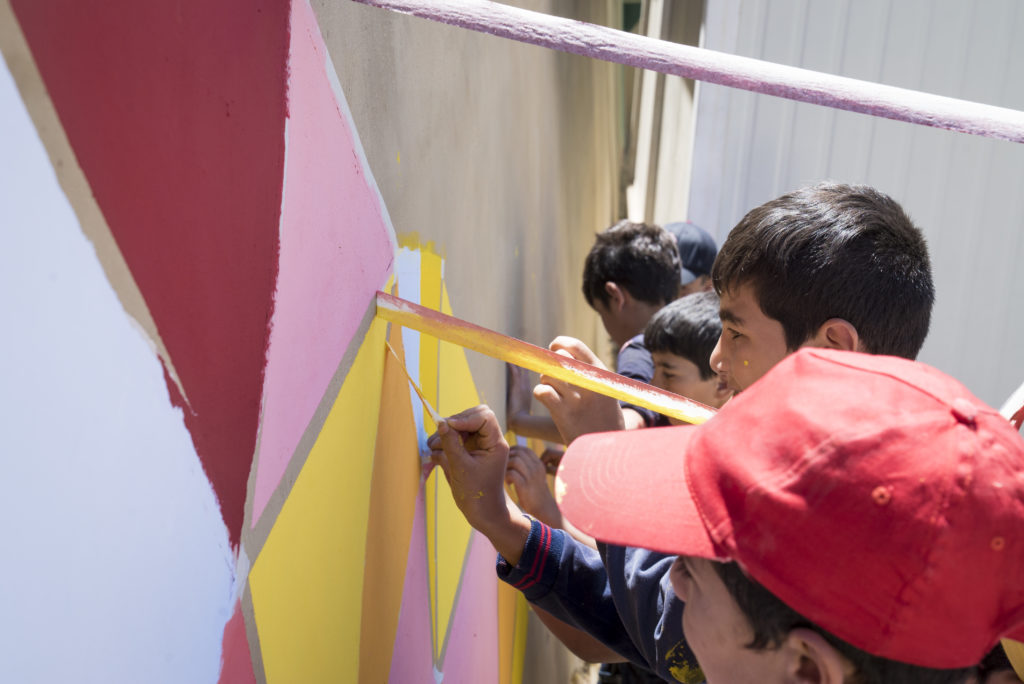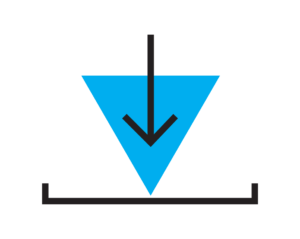
Key points
Funding for co-designed built interventions must be adequate and take into consideration all phases to guarantee meaningful participation.
Donors must be engaged in the co-creation process to understand the multiple impacts of such interventions.
Built interventions co-designed with children affected by displacement have a range of impacts beyond those of other built interventions, and they require an appropriate allocation of resources. As funders often play a significant role in the architecture of a project, a solid partnership and open communication with funders, so they can gain a full understanding of the process, can ensure continued support and the use of an appropriate metrics for assessing the value for money of such interventions.
Below are some examples of budget lines that can be considered when planning co-designed built interventions. Funding should be adequate for the time required for each phase.
In some cases, the long-term management/planning of a space might also include thinking about its maintenance. For example, it could strategically help to develop self-financing initiatives together with the key stakeholders, to help fund the maintenance costs of the newly built space. A public park might include space for a small shop to sell coffees, snacks, etc. with an agreement that some of the profits will be invested in the park’s maintenance.

BUDGET LINE
EXAMPLES OF BREAKDOWN
CONTEXT RESEARCH
- Salary costs or fees for researcher to conduct context analysis
- Salary costs or fees for researcher / built environment professional to research building materials (e.g. identify local materials and businesses)
- Field work personnel expenses (e.g. transport, food, accommodation)
PARTICIPATORY ENGAGEMENT
- Salary costs or fees for facilitators to conduct participatory design activities
- Co-design workshops expenses (e.g. room hire, stationery, refreshments)
- Local transport and other expenses for participants
- Personnel expenses (e.g. transport, food, accommodation)
TECHNICAL SURVEY
- Salary costs or fees for surveyor to conduct site survey (dimensions and levels)
- Salary costs or fees for surveyor to conduct specific analysis (e.g. soil composition, structural analysis of existing structure)
- Personnel expenses (e.g. transport, food, accommodation)
LAND/PROPERTY COSTS
- Rent
- Utilities (e.g. electricity, water)
BUILDING COSTS
- Cost of building materials
- Contractor fees
- Salary costs or fees for local labour (when done by community, childcare may also be needed)
- Health & safety provisions (e.g. first aid kit, personal protection equipment)
ARCHITECTURAL DESIGN
- Design salary costs or fee for architect or relevant built environment professional
- Personnel expenses (e.g. transport, food, accommodation)
ENGINEERING
- Salary costs or fees for engineer to conduct structural design
- Salary costs or fees for engineer to conduct climatic design studies
TENDER
- Salary costs or fees for built environment professional / procurement officer to prepare and conduct the tender process
CONSTRUCTION SUPERVISION
- Salary costs or fees for built environment professional to conduct supervision
- Personnel expenses (e.g. transport, food, accommodation)
ACTIVATION
- Inauguration event expenses (e.g. stage hire, refreshments)
- Personnel expenses (e.g. transport, food, accommodation)
MAINTENANCE
- Cost of building materials
- Fees for provider to conduct maintenance
- Salary costs or fees for built environment professional to supervise maintenance works
- Personnel expenses (e.g. transport, food, accommodation)
MONITORING AND EVALUATION (M&E)
- Salary costs or fees for M&E external consultant
- Personnel expenses (e.g. transport, food, accommodation)
LONG-TERM MANAGEMENT
- Running costs for personnel
- Running costs for activities



